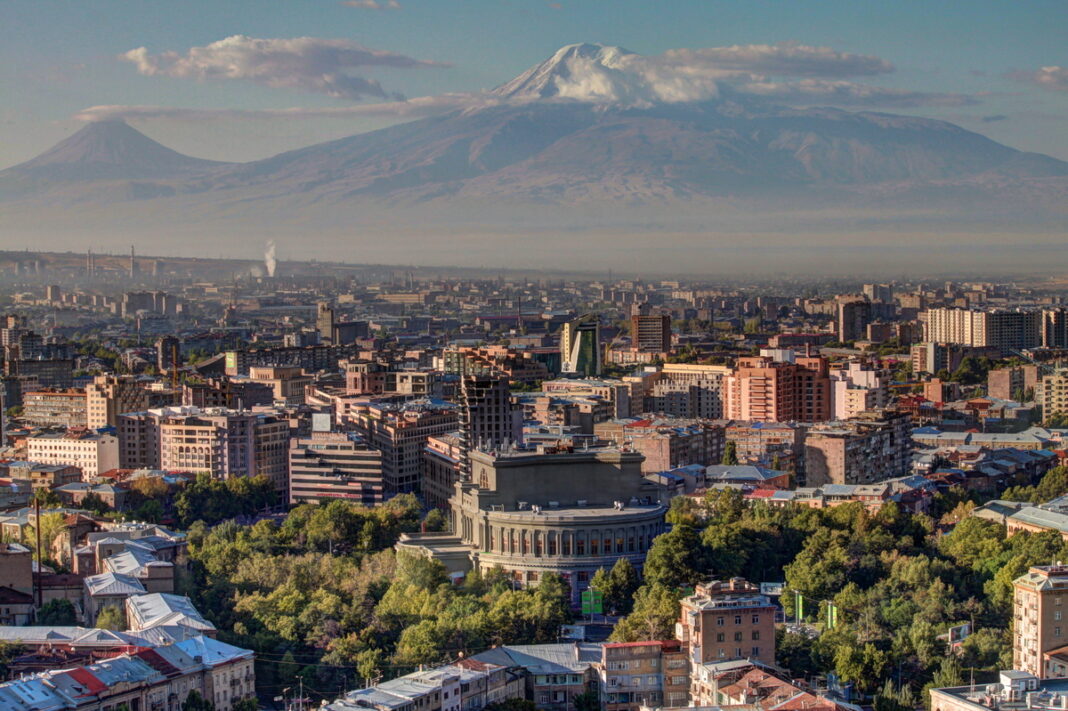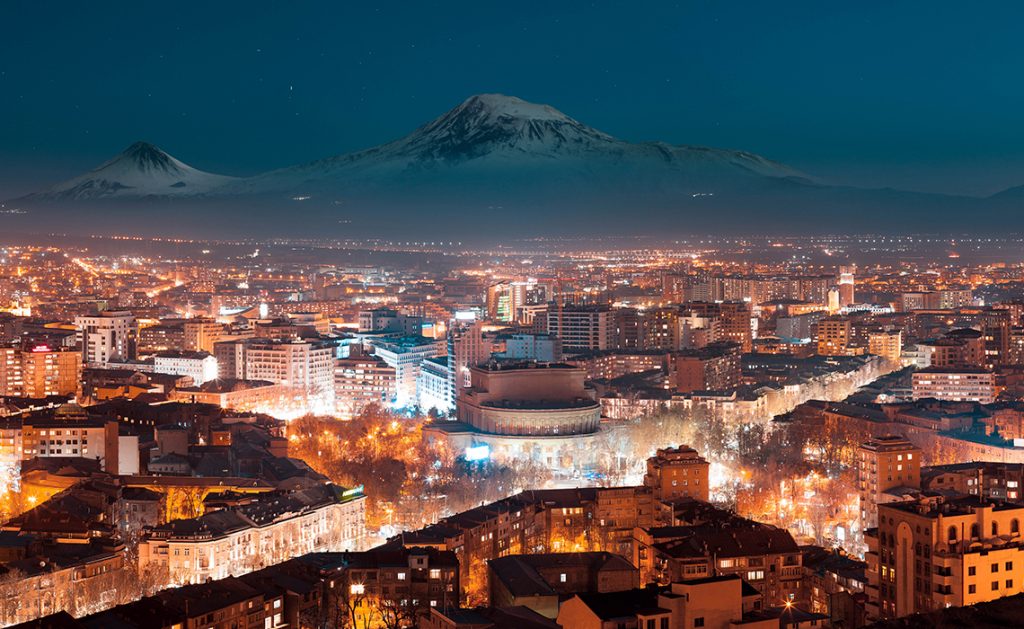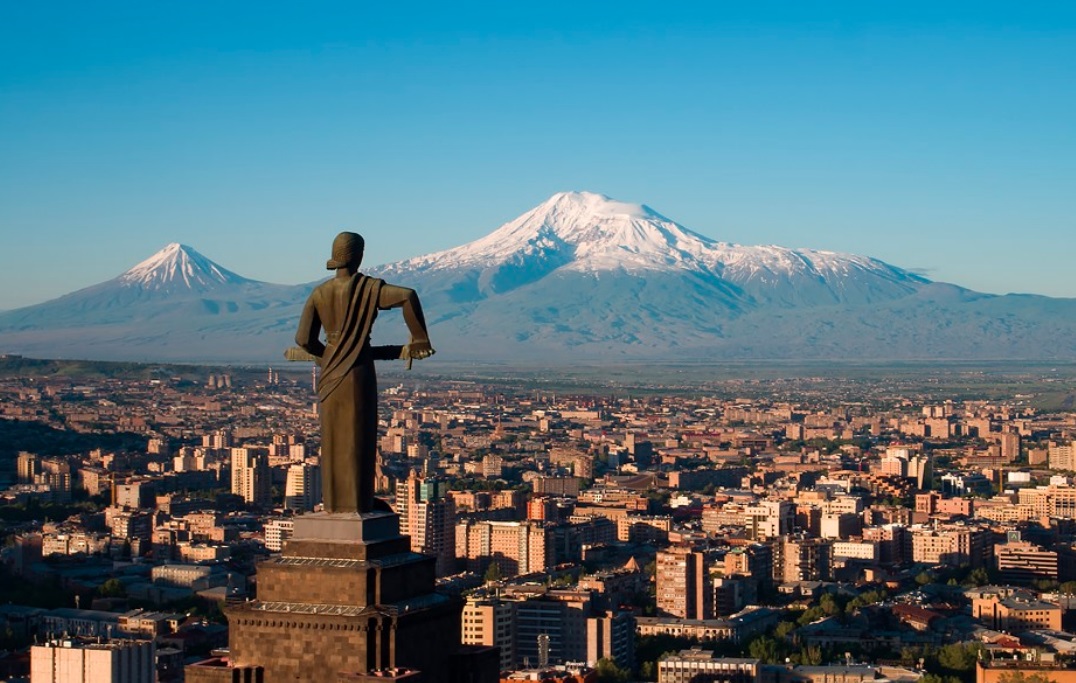Day: September 27, 2024

Economic growth in Armenia in 2024
Armenia’s Finance Minister, Vahe Hovhannisyan, stated during a government session that the 2025 budget forecasts a 5.6% economic growth. The government had initially targeted a 7% growth rate for 2024. However, by the end of August, the finance minister revised the estimate, expecting the year to close with a 6% growth.
Economist Armen Ktoyan, while cautious about making definitive predictions for the year’s end, remains more optimistic, despite the “high level of uncertainty.”
“Shock factors can disappear just as suddenly as they appear. However, I believe economic activity will remain within the range of 7-8% by the end of the year,” Ktoyan said.
He identifies these “shock factors” as developments in certain sectors of Armenia’s economy influenced by the ongoing Russia-Ukraine war and re-exports from Armenia due to sanctions against Russia.
- Tax revenues in Armenia decline: Reasons and future expectations
- Fitch has maintained Armenia’s economic rating among countries with a “stable outlook”
- Armenia-Russia Trade: Benefits and Risks of Sanctions
Comment from economist Armen Ktoyan
Five to seven percent growth due to existing potential
Armen Ktoyan believes that the current economic growth rate of 5-7% is a reflection of Armenia’s inherent potential. “At the moment, we can view this level of growth as being driven by the country’s existing potential. Any growth exceeding this is a result of additional shock factors—external influences not typically associated with our economy’s internal processes. Therefore, such growth is unlikely to be sustained long-term,” he explains.
He emphasizes that the current economic growth is slightly above the country’s internal potential.
According to Ktoyan, the economic activity indicator is generally higher than the GDP growth rate. In Armenia, this activity has recently decreased from 11% to 9%. However, he views this not as a decline, but as a “reduction in shock impacts, bringing growth closer to normal levels.”
Positive impact of external shocks still persists
Ktoyan is confident that the positive influence of external factors is still present and will continue for some time. He says that certain sectors of economic activity are still being impacted by the ongoing war in Ukraine. These sectors play a significant role in the overall economic activity index:
“That said, it’s not accurate to claim that without these external factors, the economy would be in decline or facing negative developments.”
He highlights sectors that are driving significant growth, citing construction as an example, where a large portion of projects are funded by the state. In the first eight months of this year, the construction sector saw a growth rate of 16.2%.
Foreign trade turnover increased by over 70%
According to Armen Ktoyan, Armenia’s foreign trade turnover showed significant growth over the first eight months of 2024. The volume of foreign trade increased by 70.9% compared to the same period in 2023. “Exports doubled, increasing by 2.1 times, and imports rose by 86.8%. Overall, trade turnover grew by 20.4%, reflecting the economic realities of the past few years,” Ktoyan explained.
The economist attributed this sharp increase in foreign trade mainly to the import of Russian gold and precious stones, noting that this is not a natural development. He clarified that the 20% growth in trade turnover is largely due to wholesale trade.
Uncertainty around the duration of the opportunity window
Ktoyan pointed out that re-exports, which became a significant factor during the Russia-Ukraine war, are exerting a strong “shock” influence on Armenia’s economy. He believes that sanctions against Russia will likely remain in place for a long time, continuing to provide Armenia with a “window of opportunity” in terms of trade. However, Ktoyan emphasized the uncertainty surrounding how long this window will remain open.
“This situation primarily offers formal improvements to Armenia’s economic indicators. It doesn’t generate significant added value or substantially affect tax revenues. While we see inflows, outflows, and growing trade turnover, their impact in terms of added value or long-term results within Armenia is limited,” he elaborated.
On September 22-26, the Georgian delegation headed by Prime Minister Irakli Kobakhidze participated in the 79th session of the United Nations General Assembly (UNGA). Overall, the UN General Assembly, which has traditionally served as an important platform for Georgian delegations to advocate a policy of non-recognition among world leaders, this year demonstrated a vivid failure to engage with Western leaders and there is a good chance it will be remembered for its silence on the Russian occupation.
Summit of the Future
PM Kobakhidze and FM Darchiashvili participated in the Summit of the Future, a high-level event held during the General Assembly session. Both delivered speeches addressing the broader issues of global governance and sustainable development.
“It is a great opportunity to speak at the Summit of the Future, an extraordinary global platform for addressing most pressing challenges that the world is facing today. Georgia fully supports the adoption of the Pact of the Future and its documents and is ready to incorporate key elements of the Pact into national policies in pursuit of delivering a better world for our future generations,” Kobakhidze tweeted.
Meetings (or Lack of Thereof)
The Georgian delegation’s participation in the UNGA’s 79th session came amid deteriorating relations between Georgia and the West, including the U.S., over Georgia’s recent anti-democratic actions, anti-Western rhetoric and Georgia’s significant backsliding on the EU integration path.
Compared to last year, Prime Minister Irakli Kobakhidze’s high-level meetings were noticeably sparse, while FM Ilia Darchiashvili’s meetings recorded no EU member states’ ministers.
Prime Minister’s Meetings
On September 24, PM Kobakhidze met UN Secretary-General, António Guterres. “I held fruitful discussions with H.E. António Guterres…Looking forward to work with our international partners on key aspects of SG’s proposals laid out in Our Common Agenda report and further outlined in the Pact for the Future,” Kobakhidze tweeted after the meeting.
On September 24, PM Kobakhidze also met the Secretary-General of the Council of Europe, Alain Berset. According to the press release of the government administration, the two sides discussed cooperation in the implementation of reforms on the European integration path and the situation in the occupied territories of Georgia.
“…I am grateful for the support to Georgia’s reform process and EU integration. Our conversation focused on enhancing cooperation across various domains and the joint effort required to address significant regional and global challenges,” Kobakhidze tweeted after the meeting.
Since then, no further meetings of PM Irakli Kobakhidze have been reported. Last year, then-PM Irakli Garibashvili held a total of ten meetings during the UNGA session, including with U.S. National Security Advisor Jake Sullivan, European Council President Charles Michel, and other European counterparts.
Foreign Minister’s Meetings
FM Ilia Darchiashvili held a total of ten meetings, compared to 19 last year, including five with African foreign ministers and three with European foreign ministers. He did not meet with any foreign ministers of EU member states.
FM Ilia Darchiashvili’s meetings included discussions with the Foreign Ministers of São Tomé and Príncipe, Gareth Guadalupe; Rwanda, Olivier J.P. Nduhungirehe; Angola, Tete António; Benin, Shegun Adjadi Bakari; and Somalia, Ahmed Fiqi.
According to FM Darchiashvili’s social media posts, discussions with his African counterparts focused on strengthening diplomatic relations, reviewing ongoing cooperation, and exploring opportunities for deeper cooperation in the future.
As for the European Foreign Ministers, FM Darchiashvili met with three counterparts, including Ignazio Cassis of Switzerland, Ervin Ibrahimovic of Montenegro, and Marko Djuric of Serbia.
“We welcomed the fruitful cooperation between Georgia and Switzerland in bilateral and multilateral formats and expressed readiness to intensify the exchange of high-level visits. We also discussed the security environment across the region and focused on the paramount importance of ensuring peace,” Darchiashvili tweeted after the meeting with Swiss FM Ignazio Cassis.
“I expressed gratitude for Montenegro’s support for Georgia’s sovereignty and territorial integrity. As our countries have a lot to share in terms of experience, we had a very insightful discussion on Georgia’s EU accession path, as well as on strengthening ties in the years ahead,” Darchiashvili tweeted after the meeting with FM of Montenegro Ervin Ibrahimovic.
“We welcomed the 30th anniversary of diplomatic relations between our countries, which is set to be celebrated next year and outlined the core areas of relations between Georgia and Serbia, developed during the past three decades. I noted that Serbia’s support for Georgia’s sovereignty and territorial integrity is highly appreciated,” FM Darchiashvili tweeted after the meeting with his Serbian counterpart Marko Djuric.
The other two meetings were held with the Foreign Minister of the Dominican Republic, Roberto Álvarez Gil, and the Secretary General of the Community of Democracies, Mantas Adomėnas. Discussions in these meetings centered on Georgia’s current cooperation with both the Dominican Republic and the Community of Democracies, as well as expressing support for further development of these partnerships.
Failed Meeting(s)
On September 25, PM Irakli Kobakhidze was scheduled to attend but was disinvited from a traditional reception hosted by the U.S. President Joe Biden. The U.S. Embassy in Georgia cited “increasing concerns about the Georgian government’s anti-democratic actions, disinformation, and negative rhetoric about the United States and the West,” as the reason for disinviting PM Kobakhidze from the U.S. presidential reception.
GD leaders reacted with outrage and disdain to the Biden administration’s decision, turning a blind eye to the official reasoning. PM Irakli Kobakhidze told Georgian media in New York that the U.S. President’s decision was “not serious” and served only as a “humanitarian act of support” for the Georgian opposition.
After returning to Georgia, PM Kobakhidze told the local media in his characteristically nonchalant tone: “After the dinner with Biden was rescinded, we [the delegation] went together with Mr. Zalkaliani [Georgian Ambassador to the U.S.] and had dinner together in a Georgian way.”
The Voice of America’s Georgian service, which broke the news, also said, citing a White House source, that the U.S. President’s administration had canceled all meetings with the Georgian delegation, including the meeting with Jake Sullivan, the U.S. National Security Advisor. The Georgian Government administration denied that a meeting with Sullivan had been scheduled. Prior to the Georgian delegation’s visit to the UN, local political analyst Gia Khukashvili claimed that PM Kobakhidze was seeking a meeting with U.S. National Security Advisor Jake Sullivan with the help of senior Israeli officials.
Either way, Prime Minister Irakli Kobakhidze did not have the opportunity to attend the U.S. President’s traditional UNGA reception, and returned home without meeting either Jake Sullivan or any other U.S. official.
A year ago, then PM Irakli Garibashvili attended President Biden’s reception and met with Jake Sullivan.
A Diplomatic Drama?
After confirming reports that the Biden administration had disinvited PM Kobakhidze from the event, local opposition-leaning TV station Mtavari, reported about the alleged a conflict between PM Kobakhidze and Georgian Ambassador to the United States Davit Zalkaliani. This reported dispute emerged following the withdrawal of Biden’s invitation, with media suggesting that Zalkaliani was going to resign from his position.
Later, however, the Georgian Foreign Ministry denied claims that Ambassador Zalkaliani had resigned.
No Mention of Russia
The participation of PM Irakli Kobakhidze at the UNGA was also notable for his speech at the General Assembly, a large part of which was devoted to praising the Georgian government’s performance in various macroeconomic parameters, and refrained from mentioning Russia when talking about the occupation.
“Despite the fact that 20 percent of our territories are under illegal occupation, we continue to thrive, continue to grow, and continue to ensure that our children live in a better, stronger, and more dignified Georgia,” PM Kobakhidze said, without mentioning Russia, also marking a change from the previous year’s speech by then-PM Irakli Garibashvili.
His refraining from mentioning Russia should be seen in light of the GD’s recent rhetoric regarding the 2008 war and the occupation of Georgian territories, which the ruling party blames on the previous UNM government. In particular, GD leader Bidzina Ivanishvili recently proposed apologizing to the “Ossetian sisters and brothers,” while he and the party consistently avoid naming the actual aggressor when discussing the war.
“Pleased to address GA at the 79th Session of the UNGA, great opportunity to speak on issues of both national and global concern in order to raise the awareness of the global audience on how Georgia contributes to achieving strategic objectives outlined in New Agenda for Peace, set out by the UN Secretary General. Stressed Georgia’s strategic location, serving as a natural bridge between Europe and Asia, placing Georgia on the shortest route between East and West. Georgia has a great potential to ensure safe flow of goods and services across the continents as it remains a safe and economically stable democracy in the region. Georgia has proven its ability to contribute to the global peace and security and we remain committed to the rules based international order to ensure safety and prosperity for our region and beyond,” PM Kobakhidze tweeted on September 26 at the end of the delegation’s visit to the 79th session of the UNGA.
Also Read:
- 23/09/2023 – PM Garibashvili’s Speech at 78th UNGA Session
On September 27, Ilia State University reported that although it had passed with high marks all the standards required for accreditation according to the assessment of the accreditation expert group in June this year, the Accreditation Council decided to change the experts’ high assessments without justification and explanation and to grant the university accreditation under the condition of monitoring it after one year.
“We fundamentally disagree with this decision of the Council and will certainly appeal to the Appeals Committee as soon as we receive the minutes and decision of the Council,” reads Ilia State University’s statement. Notably, the Council has 10 days to provide these documents.
A “conditional accreditation” is expected to delay the university’s full accreditation process for one year.
Education expert Simon Janashia commented on the Council’s decision, saying “Georgian Dream is trying not only to terrorize every member of society but to take over the institutions that are still free; not only Ilia State University, but the entire higher education system.”
Also Read:
- 27/09/2024 – 2024 | Chronicle of Repression




